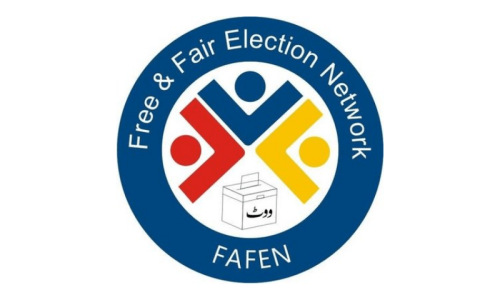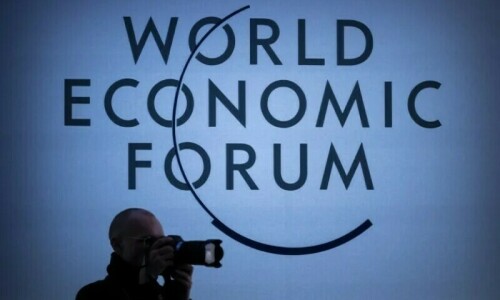BRUSSELS, July 22: The European Union widened sanctions against Zimbabwe on Tuesday despite a deal between hardline President Robert Mugabe and opposition leader Morgan Tsvangirai aimed at ending the political crisis.
EU foreign ministers, at a meeting in Brussels, added 37 more people to a list of individuals under a visa ban and whose assets have been frozen, as well as four “legal entities”, or companies.
The list — which had already included Mugabe, his wife and other senior officials — now totals 168 people and four companies, and sees the EU for the first time target business people and companies in Zimbabwe.
The new names were not immediately released so as not to alert those concerned and allow them to transfer their assets to safety.
The move came despite the signing on Monday of a deal between the veteran president and Movement for Democratic Change (MDC) leader Tsvangirai on a framework for talks on a future government.
Mugabe was re-elected in a run-off last month after Tsvangirai pulled out, citing a campaign of intimidation and violence against his supporters that had killed dozens and injured thousands.
Despite the deal, ministers said it was important to keep up the pressure.
“We decided to go for sanctions, because sanctions weigh heavily,” said French Foreign Minister Bernard Kouchner, whose country holds the EU’s rotating presidency until the end of the year.
He said the ministers took the decision “not for the pleasure of imposing sanctions, but because it is a political weight and because we want to play a positive role alongside the African Union.” Finnish Foreign Minister Alexander Stubb told reporters that the process of reconciliation in Zimbabwe would take a number of steps and that pressure was still needed as dialogue between Mugabe and Tsvangirai was just the beginning.
“To start the discussions between the opposition and government is the step number one, way too early to start discussing any lifting of the sanctions.” Britain said earlier this month that it was seeking tougher EU sanctions after a bid to pass United Nations sanctions against Zimbabwe’s leadership was vetoed by Security Council members Russia and China.
“The sanctions that we and others are proposing are designed very much to reinforce the drive for the transition government to reflect the democratic will of the Zimbabwean people,” British Foreign Secretary David Miliband said.
Zimbabwe preferred not to react to the EU’s decision.
“We are not going to comment on that at all,” said deputy information minister Bright Matonga.—AFP












































Dear visitor, the comments section is undergoing an overhaul and will return soon.